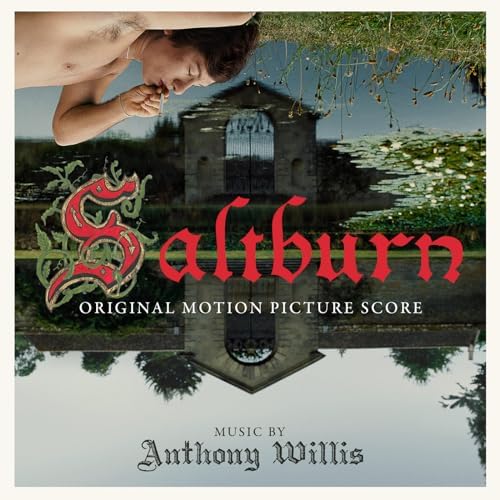By: Rachel Mattingly
Saltburn came out in November of 2023, so what better time to write about its soundtrack than in January of 2024? I was personally late to watching the film, on account of having almost no interest in it. However, it came up in conversation with my friends, one of whom suggested I write about the movie’s soundtrack for an article, because of the critical role it played in the film. After seeing Saltburn I agree about the crucial role of both the score and the other songs that were included.
Obviously music is an important aspect of all films, especially when it comes to building atmosphere and tension. This film is rife with tension, and Anthony Willis’s score was an important part of that accomplishment. He makes heavy use of string instruments throughout, a hallmark of thrillers such as this one. The music sounds familiar in many ways, not only with the incorporation of “God Save the King” and the Christian hymns, but the orchestral music itself is not particularly unique in my opinion. It felt as though Willis was giving the audience something recognizable to cling to as they’re tossed through the emotional and psychological turmoil of the film. The tone of the orchestral music is often similar to the tone of the scene, slow and somber, suggesting that the musical instruments are genuine and can be trusted. This is in contrast to the several pop songs used throughout the film, which although lyrically align with the scene being portrayed, differ wildly in tone. This occurs most iconically at the end of the film when “Murder on the Dancefloor” plays as the main character, Oliver, dances around his newly empty estate completely naked. The audience is horrified after learning what Oliver has done to acquire this newfound wealth, but the tone of the song is upbeat and jubilant. A similar dissonance occurs when “Loneliness” plays during Oliver’s birthday party, when he is surrounded by people who neither know nor care about him. The lyrics of the song might accurately describe the scene, but the rapid tempo of the heavily digitized song makes the emotion of the lyrics shallower, causing the audience to question whether the sadness of the lyrics really aligns with Oliver’s state of mind, or whether sadness is what we’re meant to believe he is feeling at all.
The use of the pop songs and orchestral music in these differing ways plays a huge role in the development of the theme of real versus false in the movie. The viewer constantly wonders who is genuine, and whether authenticity is even possible in this incredibly isolated, wealthy, and socially oblivious family that Oliver is staying with. The soundtrack reflects the deceit and underhandedness of every character in the movie. When we can no longer trust the music to tell us the real story, who are we able to rely on? The music becomes a character in the film, an unreliable narrator whom the audience must trust warily as they do all other aspects of the film.
